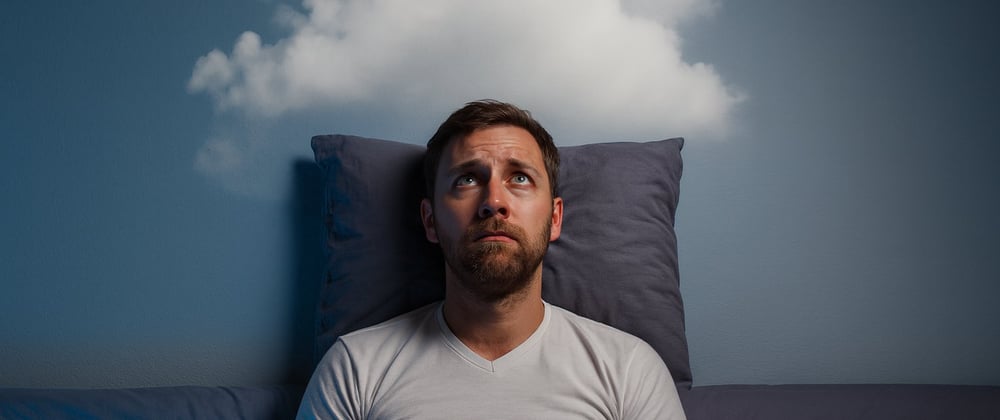Introduction: Baked Bedtime Stories
For years, my nights weren’t nights unless I was baked out of my skull. Once the sun dipped and my to-do list flatlined, it was game on. I'd smoke until my brain felt like a snow globe someone shook too hard. Sometimes I'd be so high I'd lie in bed twitching like a broken Roomba. And I liked it. The shakes were my victory dance — proof I’d hit max altitude. That was the cue: mission accomplished, lights out, see you tomorrow.
So if you’re lying awake without weed and wondering why your brain is now a noisy haunted attic, yeah — I’ve been there. Weed does help you sleep... at first. It’s like a lullaby sung by a stoner angel. But give it enough time and it stops tucking you in and starts running your life. It doesn’t just hijack your nights — it slips into everything. The edge of your days, your mood, your energy, your sense of control. It's not just a sleep aid anymore. It's the director of the whole show.
Why Weed Makes It So Hard to Sleep Without It
According to Midwest Recovery Centers, THC becomes a “sleep cue” for many users — especially those who use it nightly. It relieves stress, quiets anxiety, and knocks you out.
When you quit, your body doesn’t just miss THC. It forgets how to fall asleep on its own. Studies show that withdrawal increases sleep latency (the time it takes to fall asleep), reduces total sleep time, and disrupts sleep quality. Vivid dreams and night sweats are especially common in heavy or long-term users.
“Insomnia is one of the most infuriating symptoms,” Midwest Recovery writes. “Most report sleep issues during the first week, and for some, sleep disturbance may last months if untreated.”
What Real People on Reddit Are Saying
In r/leaves and other subreddits, you’ll find post after post from people trying to sleep without weed.
“I’ve been up about 25 hours so far... I feel tired but when I close my eyes I just can’t sleep.”
Others describe melatonin failing, dreams becoming vivid and terrifying, and sleep staying broken weeks or months into quitting. But there’s also hope:
“It’s just something you have to go through. But it’s worth it.”
“One night of real sleep… then another. It builds.”
One Redditor shared:
“Your body is so used to THC inducing sleep that it struggles to do it naturally… But it gets better.”
My Story: Early Recovery and Sleepless Nights
In early recovery, falling asleep, staying asleep, and feeling rested were a constant battle. I would wake up in the middle of the night numerous times. I sweated so much that I decided to sleep in a full pajama outfit just so I could peel it off in the middle of the night after soaking through it. This happened every night at first and only slowly tapered off over the course of a month.
Then came the vivid dreams. It was like catching up on years’ worth of missed dreams in a single night. They weren’t just strange — they were consuming. I’d wake up thinking about them, replay them during the day, and sometimes even carry their feelings with me all week.
You can handle these in different ways: some people write them down, others share them in meetings or therapy. Personally, I decided to let them go. Wake up, acknowledge the dream, feel whatever came with it, and then release it with no extra meaning.
This phase wasn’t easy, but it was temporary. Eventually, the night sweats stopped. The dreams normalized. And now, I sleep better than I ever did with weed. Naturally.
Sleep Architecture Changes: What’s Really Going On
As VICE’s expert guide explains:
- THC suppresses REM sleep, where most dreaming happens.
- When you quit, your brain rebounds with extra REM, bringing intense or even disturbing dreams.
- Over time, your sleep architecture balances back out — deep sleep, REM, and light sleep fall into a healthier rhythm.
This is why many people report dreaming again for the first time in years — and why it can feel overwhelming at first.
Melatonin: Helpful or Hype?
Melatonin can work for some, but not all. It’s most effective for resetting circadian rhythm, not knocking you out. Low doses (0.5–1mg) taken a few hours before bed are best. More can backfire.
If you try it, pair it with a strong sleep routine. And always check with a doctor if you’re taking other medications or struggling with depression or anxiety.
Quick Wins You Can Try Tonight
- Take a 10-minute walk at dusk, then dim your lights.
- Hot shower → 15 minutes of breathwork or guided body scan.
- Put your phone in another room. Use a simple alarm clock.
- Can’t sleep? Leave the bed. Do something quiet in dim light.
- Write a note: “Why I’m doing this” — keep it by your bed.
Things To Consider for the Longterm
- Only use your bed for sleep (or intimacy).
- If lying awake, leave bed. Stay up until sleepy. This retrains your brain.
- Dream rebound? Keep a log — or do what I did and let them pass.
- Address core stress. CBT or therapy can help if anxiety/depression lingers.
- Tapering vs. abstaining. If you’re moderating, avoid nightly use and never chase knockout doses. For many (me included), abstinence was easier long-term.
What the Research and Clinicians Say (Plain English)
- Withdrawal insomnia is common. It usually improves in ~2 weeks, but habits matter. Midwest Recovery Centers
- REM rebounds hard. Expect intense dreams when quitting. It’s a good sign.
- Routine > hacks. According to VICE's sleep experts, real improvement comes from routine: wind-down rituals, mental boundaries, and consistency.
FAQs (That Real People Are Asking)
Q: How long does weed withdrawal insomnia last?
Most people feel better in 2–4 weeks. But sleep may lag longer if you're not changing your routine or addressing mental health triggers.
Q: Are vivid or disturbing dreams normal?
Yes. They’re a sign that REM sleep is coming back. For some, this phase is brief. For others, it can last weeks. It will pass.
Q: What about night sweats?
Completely normal during withdrawal. Many people report sweating through clothes or sheets. This typically fades within the first month.
Q: Does melatonin help?
Sometimes — especially for timing. Low doses (0.5–1mg) taken a few hours before bed work best. Not everyone finds it effective.
Q: What if I’ve always had trouble sleeping — even before weed?
That’s very common. Weed may have masked a deeper issue like anxiety, trauma, or poor sleep habits. Now’s the time to address the root.
Q: Can I just cut back instead of quitting?
You can try — but beware of falling back into daily use. If you go this route, set firm off-days and stay honest. For many, full abstinence is simpler.
Additional Resources
- r/leaves — Reddit support for quitting weed
- Marijuana Anonymous — 12-step community
- Apps: Insight Timer, Sleepio, Binaural Beats, CBT-I Coach
- Book: Why We Sleep by Matthew Walker
- For therapy: look into CBT-I, EMDR, or trauma-informed therapists
Final Word: You’re Not Alone
I wrote this because I’ve been there. I know what it’s like to be exhausted, frustrated, and tempted to light up just to feel human again.
But here’s the truth: You’re not just quitting weed.
You’re reclaiming your nights.
Your mornings.
Your life.
It won’t happen overnight. But it will happen.
Keep going.
— A recovering adxict


Top comments (0)